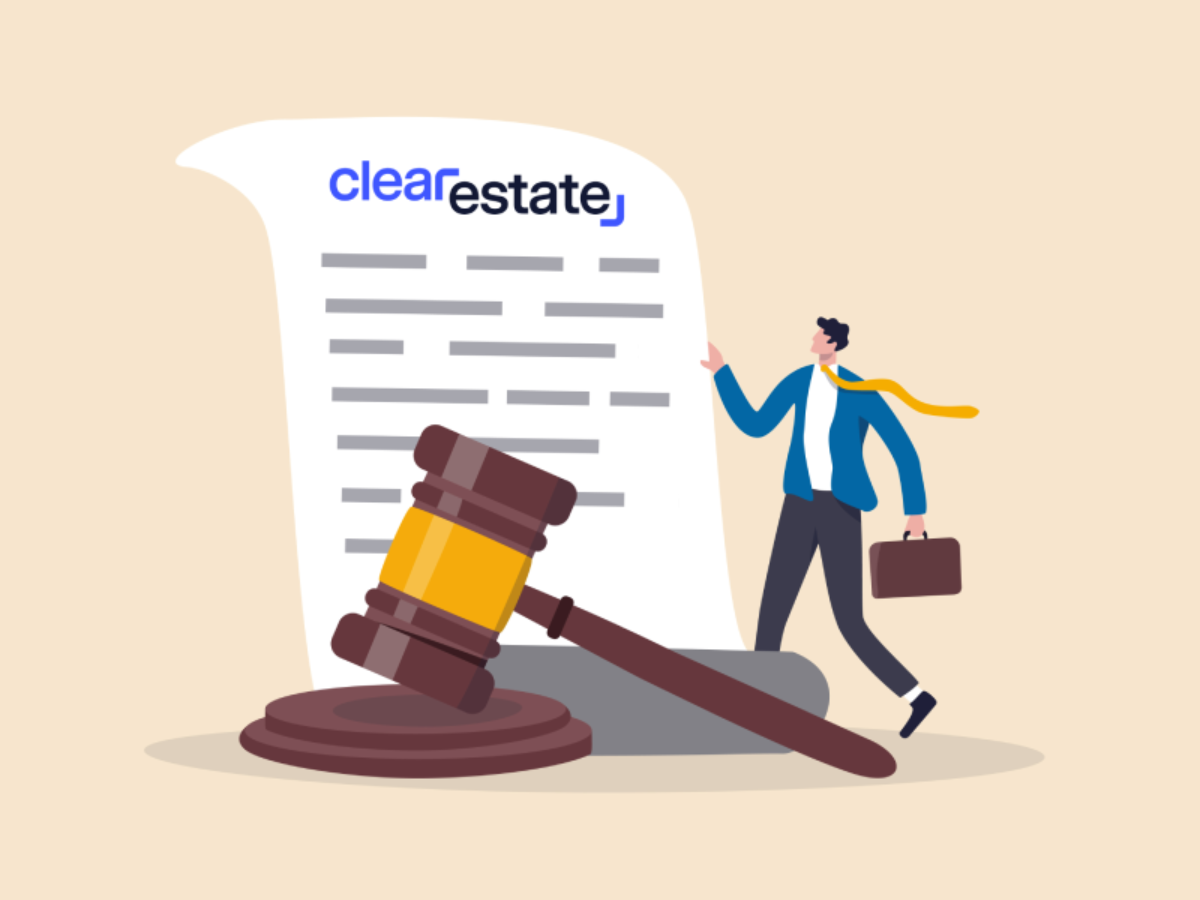Estate Settlement
May 01, 2025
What to Do When Someone Dies in California
Follow this step-by-step guide to navigate legal duties, probate, and estate tasks with clarity and confidence.
Letters of administration are needed when a decedent died without a will in Florida. In this post, we break down all you need to know about a letter of administration.


Acting as the personal representative for a loved one’s estate is a significant legal responsibility.. Maybe you chose to do so before their passing as a way to show your love and care for their wellbeing. But, now that the time has come for you to act on their behalf, the process can feel overwhelming, especially since they did not have a will.
At ClearEstate, we understand the challenges of estate administration. That’s why we’ve created this comprehensive guide to help you navigate the legal requirements, apply for letters of administration, and fulfill your duties with confidence.
Letters of Administration are court-issued documents that grant a personal representative the legal authority to manage and distribute a decedent’s estate. As in others states, these are required when someone passes away without a will, and probate is necessary to transfer assets.
A personal representative with Letters of Administration can:
Access Banks accounts
Handle insurance policies
Manage and sell real estate Real estate
Oversee brokerage and investment accounts
Additionally, other third parties will need a certified copy of the letters of administration to know to who to release the deceased’s assets. In short, this document is crucial to ensuring the estate's assets are dealt with in a manner the deceased would have wanted.
Form E4 is the official letter court document issued by a Florida probate judge that legally appoints the personal representative.Important legal restrictions apply:
The estate must be settled within 12 months, unless extended by a court order.
Letters cannot be stored in a safety deposit box unless permitted by the court.
Any cash assets must be placed in a court-approved depository—withdrawals require court approval.
The representative cannot transfer, sell, or gift estate assets without a court order.
According to Title XLII Chapter 733 of the Florida Statutes, every fiduciary (someone who has a financial duty acting on behalf of another) granted letters of administration will need to furnish a bond. Unless it is not required by a court order, you will need to supply it, along with a fee and Form E4A.
Quick Note: If you choose to, pursuant to subsection 4 of Chapter 733.402, you can petition the court to have the requirement for an estate bond removed, provided you are an interested party.
If the deceased was not a Florida resident but owned real estate in the state, Ancillary Letters of Administration (Form E9) are required to legally manage and distribute those assets.
Note that the requirements/restrictions of these ancillary letters are the same as the restrictions on the letters of administration (E4)–located above.
Now that we’ve covered the basics let’s go through the required documents and step-by-step process for obtaining Letters of Administration in Florida.
Before receiving the official letter of administration,you must gather and file the following official documents (usually in the form of a certified copy, or original):
Original copy of the death certificate
A sworn and notarized oath of office
A furnished bond, if required
Notice to any surviving family members that have a claim in the decedent’s estate must be served
Once you have completed the above requisite steps, you are now ready to petition for the opening of the estate.
Different probate cases require different types of filings. If you completed the filing yourself, expect to pay around $235-400 for court filing fees.
Below is a breakdown of the costs based on the type of probate
| Probate Petition | Fee |
| For summary administration less than or equal to $1,000.00 | $235 |
| For summary administration greater than $1,000.00 and ancillary summary administration | $345 |
| For formal or ancillary formal administration, curatorship, conservatorship or guardianship of property (including voluntary guardian property) | $400 |
Note: Fees may vary by county. Always check with the local probate court for the most up-to-date costs. (Source: Orange County Court of Florida)
If the decedent’s assets were placed in a trust rather than a will, the probate process may not be necessary. However, some assets might still require court intervention depending on:
How the assets were titled
Whether they were properly transferred into the trust
In most cases, successor trustees do not need Letters of Administration to manage the trust assets.
Estate administration involves complex forms, legal requirements, and strict deadlines—but you don’t have to figure it out alone. Our trusted probate professionals will guide you through the process, ensuring everything is handled properly.
Talk to a specialist now. Get your estate questions answered!
 Simplify Probate Today
Simplify Probate Today
Get expert guidance from our specialists who've helped 10,000+ families.
Book a free consultation